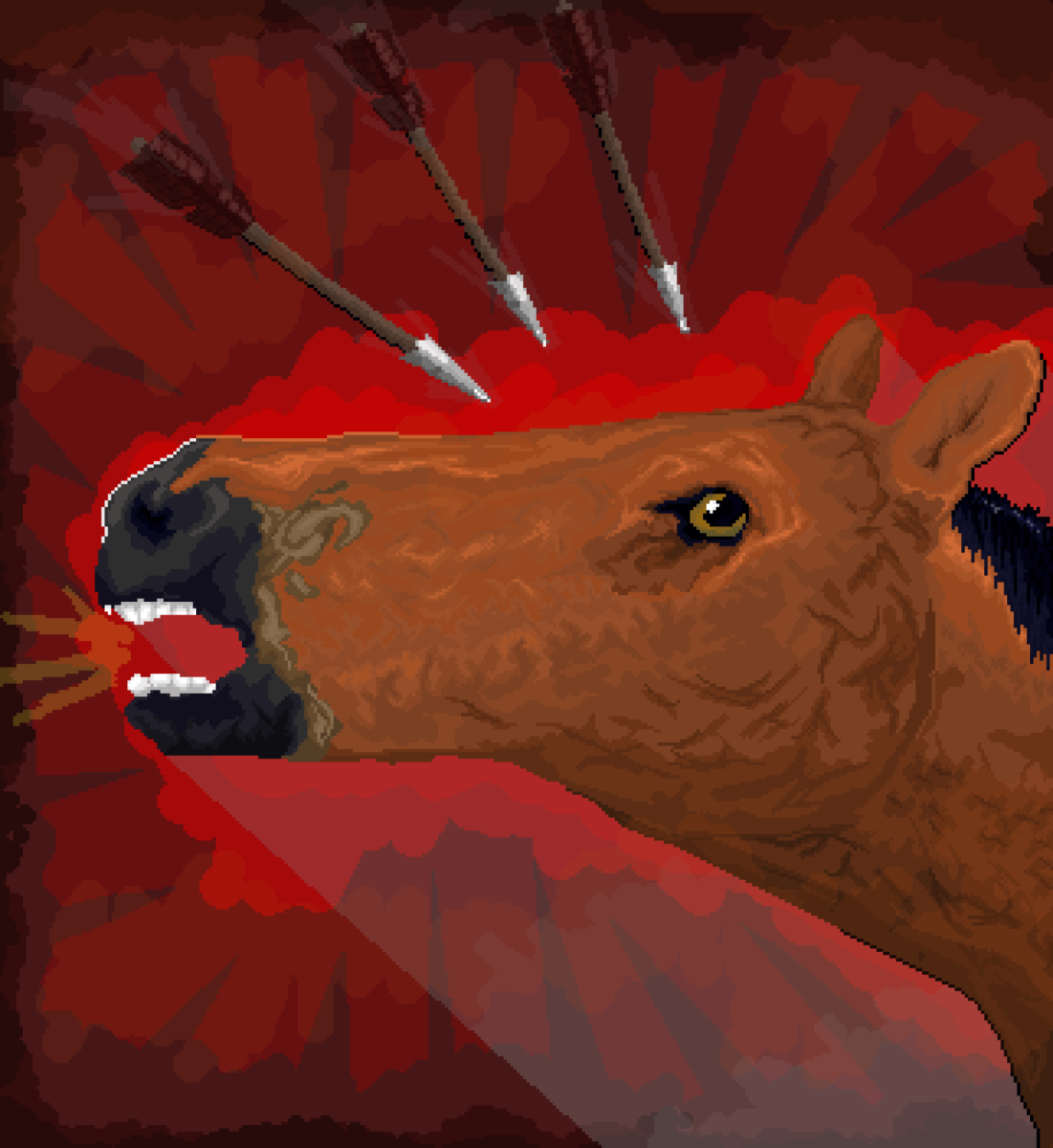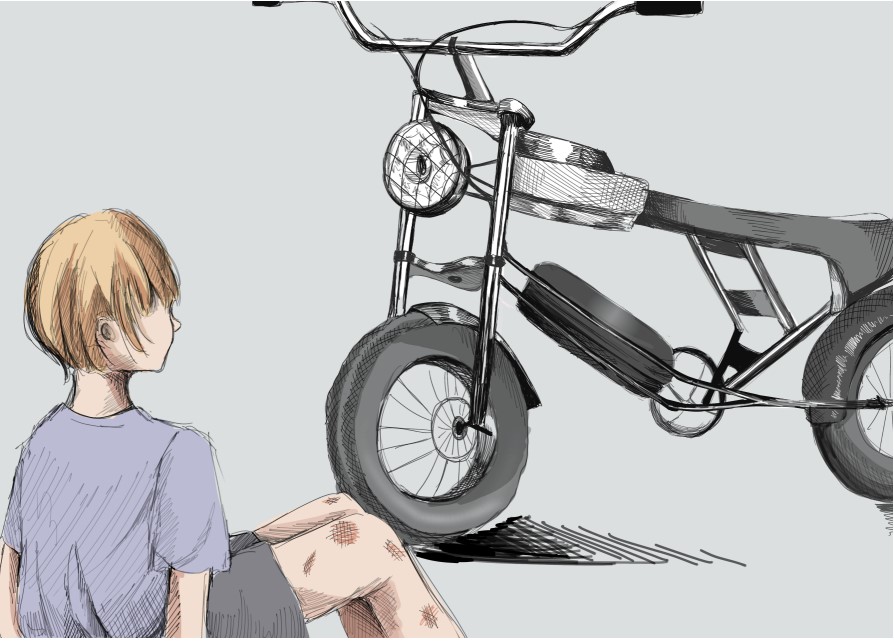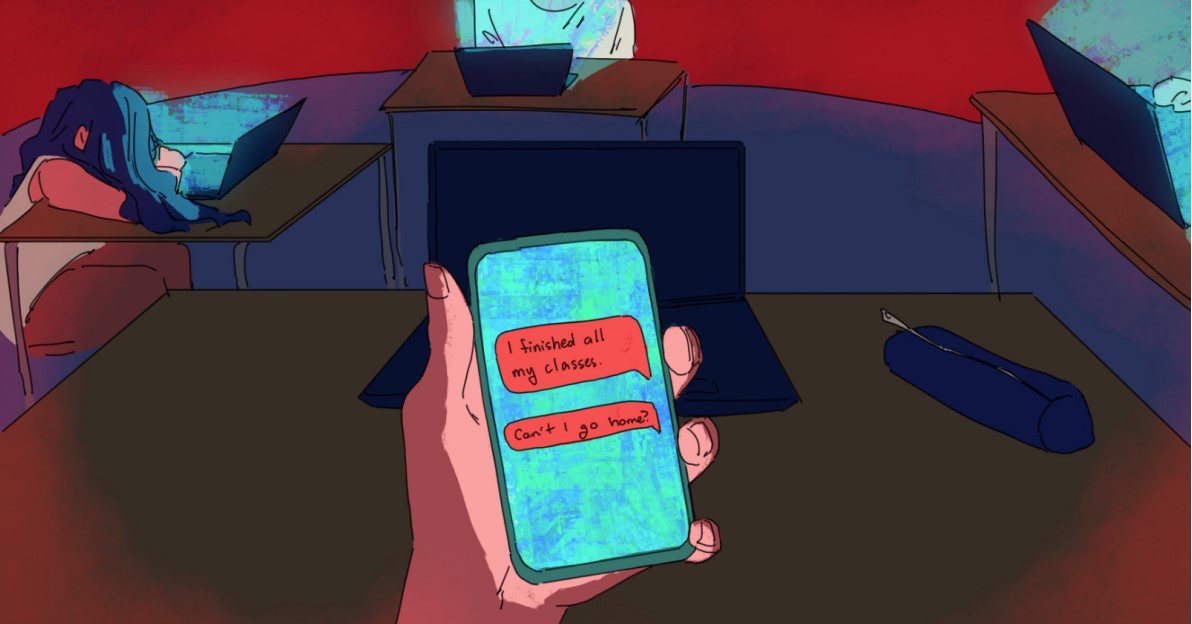Horses are a terrible nuisance to modern society due to their lack of overall purpose as a domesticated animal and our impact on these majestic creatures are more harmful than good.
Throughout ancient human history horses have been powerful tools and have been man’s second best friend for over 5,000 years. These animals were used for intense and laborious tasks, consumed for food and leather and as means of quick transportation. But only recently have humans switched to machines with the steam engine arriving around the late 18th century and automobiles becoming commercially available in the 19th. Leaving horses as outdated technology that are only used in very niche circumstances.
Even though humans have bred horses for thousands of years, with the Romans and Mongols both having interacted with these animals, it doesn’t change the fact that they haven’t gotten any less dangerous. The average horse weighing on average at half a ton and their sheer size overwhelms most humans. According to MadBarn, they also get spooked easily, mostly attributed to their ingrained genetic behavior to abuse their ludicrous speeds and evade predators. Causing them to be unnaturally aggressive toward otherwise harmless things, including humans. With the NationWideChildrens citing 65,500 horse related injuries annually reported by the U.S. emergency departments. The horse serving no real transportation purpose to the normal human being, hassling oneself to saddle one displays an unnecessary risk that could’ve been entirely avoided.
Obviously it is inefficient for people to use horses for travel, as the automobile was invented 100 years ago and its main function is to outperform horses. There is a reason why automobiles use horsepower as a unit of measurement. The impracticality of enslaving horses for transportation is something sophomore Kaiden Vo would like to opine on.
“They’re dangerous. If you use them in a commercial setting, you can’t ride a horse to school…[if you] run over somebody, they will most likely die, because horses are pretty big and heavy,” said Vo.
The added benefit of having the most ancient form of transportation is that they are really unsanitary, leaving behind mounds of feces that trail behind them wherever they trot, which don’t affect the rider but does affect every single normal person who uses their own legs to walk. Such nutritious and fibrous diets require horses to excrete manure eight to 12 times a day, which totals to almost 50 pounds of fecal matter according to the Tribute Superior Equine Nutrition. Sophomore Aiden Alvarez has a personal and traumatic experience with these animals that display this specific issue.
“I do cross-country, so going on trails a lot and running around, it’s kind of difficult to run because there’s always a lot of poop everywhere… you can’t really pick it up, so it just kind of sits there and rots. So it’s not really sanitary,” said Alvarez.
The evolved traits of modern horses are due to humans selectively breeding these animals to only be faster, less aggressive and more powerful. But this selective breeding has some serious drawbacks to the horses health, as the bones on a horse’s back where people usually saddle aren’t the strongest, their organs slosh around their rib cage to sync with the animal’s rapid movements but causes them to tangle and blood vessels commonly burst according to The Drew Acorn.
Even with this knowledge humans still choose to abuse these animals despite being provided with an alternative in cars and being more knowledgeable about the suffering of horses. Which raises the ethical concern that they shouldn’t continue to be ridden as they are an evolutionary mistake. A topic chemistry teacher Jennifer Blackie agrees with.
“I don’t think that it’s ethical to raise an animal-any animal just for human use. I think we’re wise enough and having options now as humans that we don’t have the right to raise any animal just to suit our own purposes,” said Blackie.
Again horses aren’t vehicles, they are living animals that do feel pain according to the HorseSport and in some cases they are more emotionally driven than humans. But this isn’t completely recognized by everybody, including the horribly immoral horse racing industry. In events such as the Kentucky Derby, or British Grand National, many horses are killed regularly once they grow obsolete according to The Humane League. Being treated as a marketplace for gambling, being underfed and overcrowded are some of the unethical conditions they face. Even if a horse makes it through its racing career eventually it will be exported to its death as it is cheaper instead of caring for the animal. Thousands of infant horses are also slaughtered who are deemed unfit for this industry. However these races have been in decline and attendance to them has also decreased, so good progress humans.
Unfortunately it is quite easy to ignore our horrible treatment of horses knowing that our ancestors also did the same. That the use or otherwise abuse of horses should remain because it is a cultural tradition that humans have performed for thousands of years. Yet this uneducated statement fails to reconsider that back in the day humanity wasn’t as educated or compassionate. For goodness’ sake back then we had slavery and a majority lack of human rights. So of course horses were treated like garbage, humanity in its development didn’t have any other option for powerful labor and transportation. But we’re better now, more civilized and advanced, meaning there is no need to keep constricting ourselves toward a primitive piece of technology. Just because we’ve done something inhumane for thousands of years doesn’t make it any less unethical.
Amidst the chaos there is a solution, although horses are domesticated animals, reintegration into the wilderness is possible, allowing them to judge their own characteristics that would better suit them for survival. Chem teacher Blackie goes hiking a lot and is excited about this prospect.
“There are herds of wild horses in some places. We’ve seen them in Colorado and Wyoming. There’s these herds of wild horses that are just out in BLM (Bureau of Land Management) land running around eating grass and I don’t know, they seem like they’re pretty happy,” said Blackie.
Indeed they are happy as horses are social animals with complex herd structures, a luxury they simply don’t have available in such brutal confinement.
Rehabilitation could revolutionize horses and reinvent them as a species, although we will have to be concerned with them being non-native to America and outcompeting other animals. However historically horses were at one point roaming the plains of North America until they went extinct, which is awfully poetic, as we’ve brought them back. Their slow reintegration has proven successful with the Return To Freedom organization constructing stable conservations for horses across America.
By criticizing the modern use of horses, it would undoubtedly be immature not to also state that there are genuine and loving horse owners in the world. There are those who do take care of their animals responsibly and enjoy riding them. But overall as a species horses have been historically neglected and mistreated by humans, making it a better solution to sever this domesticated connection for their own sake. Afterall, humans have always been the biggest nuisance to horses.









